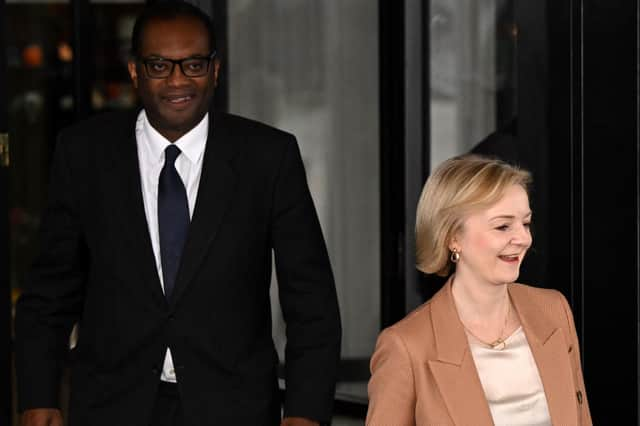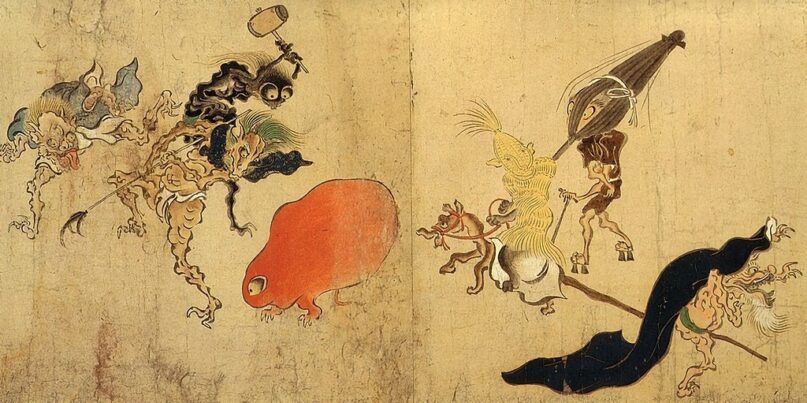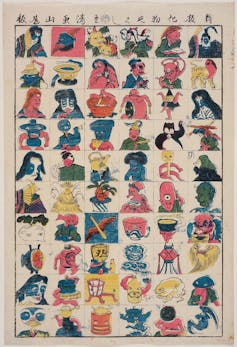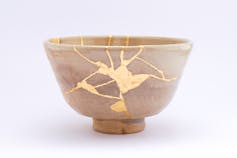ANOTHER WORLD CUP UPSET
FIFA World Cup: Morocco beats Portugal, becomes 1st African team to reach semifinals
While a tearful Ronaldo headed right down the tunnel– and maybe into international retirement–after the final whistle, Morocco’s players tossed their coach in the air and waved their country’s flag as they linked arms in front of celebrating fans.
“Pinch me, I’m dreaming,” Morocco goalkeeper Yassine Bounou said. “Morocco is ready to face anyone in the world. We have changed the mentality of the generation coming after us. They’ll know Moroccan players can create miracles.”
Youssef En-Nesyri scored the winning goal in the 42nd minute to continue an improbable run that has generated an outpouring of pride in the Arab world, inspiring displays in Arab identity from fans in different countries.
Africa is also rejoicing at finally having a nation advancing to the levels typically only reached by European or South American teams. Cameroon (1990), Senegal (2002) and Ghana (2010) all reached the quarterfinals but got no further.
Morocco has broken through, setting up a semifinal match against either France or England.
The 37-year-old Ronaldo, one of soccer’s greatest players but now a fading force, didn’t start for the second straight game and came on as a substitute in the 51st minute. He missed his only chance to equalize in stoppage time.
The five-time world player of the year is set to finish his career without capturing the World Cup or ever getting to the final. He walked right off the field after the final whistle, only briefly stopped by two Morocco players wishing to shake his hand and a spectator who confronted him near the entrance to the tunnel, and was crying as he headed to the locker room.
If this is the end for Ronaldo at international level, he’ll finish with 118 goals– a record in men’s soccer– and a European Championship title but not soccer’s biggest prize. He only got as far as the semifinals at the World Cup, in 2006.
READ MORE: FIFA fines Croatia soccer federation following verbal abuse of Canadian keeper
“Our players are distressed,” said Portugal coach Fernando Santos, who shrugged off questions about his own future and added that he didn’t regret not starting Ronaldo. “Cristiano is a great player and he came on when we thought it was necessary. But no, no regrets.”
There’s no reason why this Morocco squad– coached by French-born Walid Regragui and containing 14 players born abroad _ cannot go all the way to the title. They topped a group that included second-ranked Belgium and fellow semifinalist Croatia and have now taken down two of Europe’s heavyweights in Spain– after a penalty shootout in the round of 16– and Portugal in the quarterfinals.
“Why shouldn’t we dream of winning the World Cup?” Regragui said. “If you don’t dream, you don’t get anywhere. It doesn’t cost you to dream.”
Morocco’s defense has yet to concede a goal by an opposition player at this year’s World Cup– the only one it has allowed was an own-goal– and it stifled a Portugal team which beat Switzerland 6-1 in the last 16 to thrust itself among the favorites.
In a game played to the backdrop of non-stop whistles and jeers by Morocco’s passionate fans, the team relied almost exclusively on counterattacks and scored from one of them.
A cross was swung in from the left and En-Nesyri leapt between Portugal goalkeeper Diogo Costa and defender Ruben Dias to head into the empty net.
Ronaldo, who will be 41 by the time of the 2026 World Cup in the United States, Mexico and Canada, barely got a touch of the ball until stoppage time when he got in behind Morocco’s defense off a long ball forward. His low shot was saved by Bounou.
“I was afraid he might play,” Regragui said of Ronaldo, “because I know he can score out of nothing.”
Substitute Walid Cheddira was shown a red card for Morocco early in stoppage time for collecting a second yellow card in as many minutes.
After Portugal center back Pepe headed wide from inside the six-yard box in the sixth minute of added time, Ronaldo fell to his knees in dejection.
While Lionel Messi will be in the semifinals with Argentina, the other soccer great of this generation won’t be.
Injuries
Morocco might have to cope without its two starting center backs in the semifinals. Nayef Aguerd missed the game against Portugal with a thigh injury and Romain Saiss, Morocco’s captain, was carried off on a stretcher with a suspected left hamstring injury. Another key member of the defense, left back Noussair Mazraoui, was absent because of an illness while Regragui said right back Achraf Hakimi has been playing with an injury.
Ronaldo
Cristiano Ronaldo has failed to score in the knockout stage in any of the five World Cups he has played. He has scored eight goals in the group stage.
Africa, Arab world celebrate Morocco win
over Portugal in World Cup quarter-final
Sat, 10 December 2022
© Fadel Senna, AFP
Moroccan soccer fans exploded in joy on Saturday as their team became the first from any African country to reach a World Cup semi-final, filling the stadium in Qatar with a deafening roar and unleashing cheering, crying, dancing and singing on the streets at home.
The 1-0 victory over Portugal was celebrated further afield, with exuberant fans from Abidjan in Ivory Coast to Riyadh in Saudi Arabia lauding what they saw as a historic win for both Africa and the Arab World.
"They made us happy and proud and they proved that they can make it to the final. Why not? We are so proud of this team that is supported by Africa and Arabs" said Siham Motahir, a young woman in Rabat, where cafes had filled with fans to watch the game.
To the rhythmic playing of a horn, men and women jumped up and down waving the Moroccan flag - part of a sea of people who had filled Rabat's city centre, raising a cacophonous din of triumph.
The win over Cristiano Ronaldo's Portugal is Morocco's third over a highly ranked European team in the tournament, a run that had brought delight both in Morocco and for Africans and Arabs more widely.
Arab and African political and sporting leaders paid tribute to Morocco, including tweets from the prime ministers of Libya, Iraq and the Palestinian Authority and the rulers of Bahrain and the United Arab Emirates.
(Reuters)
MOROCCO MAKES HISTORY AS FIRST AFRICAN TEAM TO REACH WORLD CUP SEMIS
DOHA, Qatar — Morocco became the first African country to reach the World Cup semifinals by defeating Portugal 1-0 on Saturday, likely ending Cristiano Ronaldo's chances of winning soccer's biggest prize.
Youssef En-Nesyri scored the winning goal in the 42nd minute to continue Morocco's improbable run that has generated an outpouring of pride in the Arab world during the first World Cup to be staged in the Middle East.
The 37-year-old Ronaldo, one of soccer's greatest players, didn't start for the second straight game but came on as a substitute in the 51st minute.
If this indeed becomes Ronaldo's final World Cup, the five-time world player of the year would finish his career without capturing the World Cup or ever getting to the final.
Morocco will play either France or England in the semifinals.
It is a seminal moment in World Cup history, with an African nation finally advancing to the levels typically only reached by European or South American teams.
Cameroon (1990), Senegal (2002) and Ghana (2010) all reached the quarterfinals but got no further.
Morocco-Portugal highlights
And off the field, this Morocco squad — coached by French-born Walid Regragui and containing 14 players born abroad — is uniting the Arab world, inspiring displays in Arab identity from fans in different countries.
There’s no reason why Morocco cannot go all the way to the title, either, after topping a group that included second-ranked Belgium and fellow semifinalist Croatia and now taking down two of Europe’s heavyweights in Spain — after a penalty shootout in the round of 16 — and Portugal in the quarterfinals.
Youssef En-Nesyri scores on an incredible header
Morocco’s defense has yet to concede a goal by an opposition player at this year’s World Cup — the only one it has allowed was an own-goal — and it stifled a Portugal team which beat Switzerland 6-1 in the last 16 to thrust itself among the favorites.
In a game played to the backdrop of non-stop whistles and jeers by Morocco’s passionate fans, the team relied almost exclusively on counterattacks and scored from one of them.
A cross was swung in from the left and En-Nesyri leapt between Portugal goalkeeper Diogo Costa and defender Ruben Dias to head the ball into the empty net.
Ronaldo, who will be 41 by the time of the 2026 World Cup in the United States, Mexico and Canada, had been looking to reach the semifinals for only the second time after 2006.
Try as he might, he barely got a touch of the ball until stoppage time when he got in behind Morocco’s defense off a long ball forward. His low shot was saved by goalkeeper Yassine Bounou, who hadn’t had too much to do before that point.










